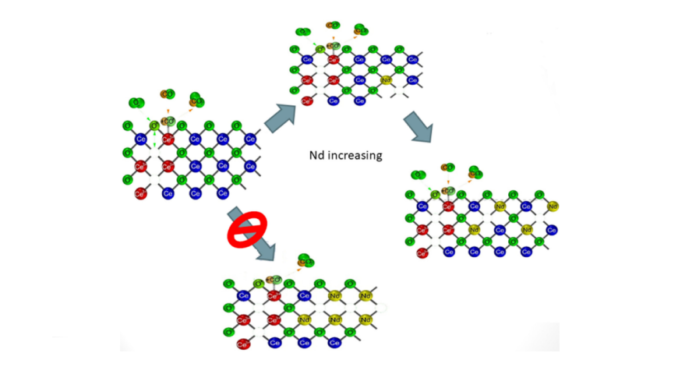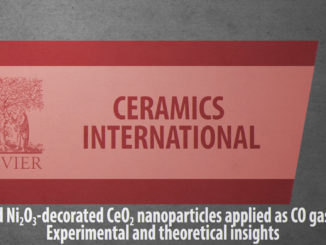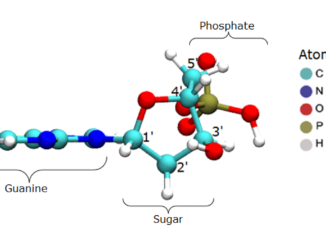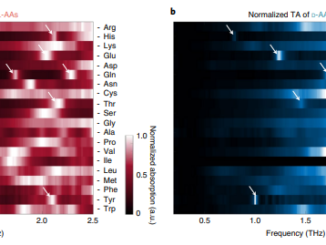
Electrical transport mechanisms of Neodymium-doped rare-earth semiconductors
Abstract: This study reports the electrical properties of Nd-doped cerium oxide (CeO2) films synthesized by microwave assisted hydrothermal using a two-point probe technique. Positron annihilation lifetime spectroscopy studies evidenced that, as the Nd content rises, a structural disorder occurs. This is caused by an increase in oxygen vacancies surrounded with Nd (defective clusters), with the mean lifetime components ranging between 290 and 300 ps. Particle size estimation showed values from 8.6 to 28.9 nm. Along with the increase of neodymium impurities, also the conductivity increases, due to the hopping conduction mechanism between defective species. This gives rise to a response time of only 6 s, turning these materials candidates to realize gas sensor devices. Ab initio investigations showed that the improved electric conduction is boosted mostly by the reduced Nd2+ than the Ce3+, where the oxygen vacancies play a fundamental role.
Author(s): Vaz, I.C.F. ; Macchi, C.E.; Somoza, A.; Rocha, L.S.R. ; Longo, E.; Cabral, L.; Silva, E.Z.; Simões, A.Z.; Zonta, G.; Malagù, C; Desimone, P. M.; Ponce, M.A.; Moura, F.
Journal of Materials Science: Materials in Electronics
Published: 26 April 2022
DOI: https://doi.org/10.1007/s10854-022-08098-9
CDMF
The CDMF, hosted at the Federal University of São Carlos (UFSCar), is one of the Research, Innovation and Dissemination Centers (RIDC) supported by the São Paulo State Research Support Foundation (Fapesp), and also receives investment from the National Council Scientific and Technological Development (CNPq), from the National Institute of Science and Technology of Materials in Nanotechnology (INCTMN).




